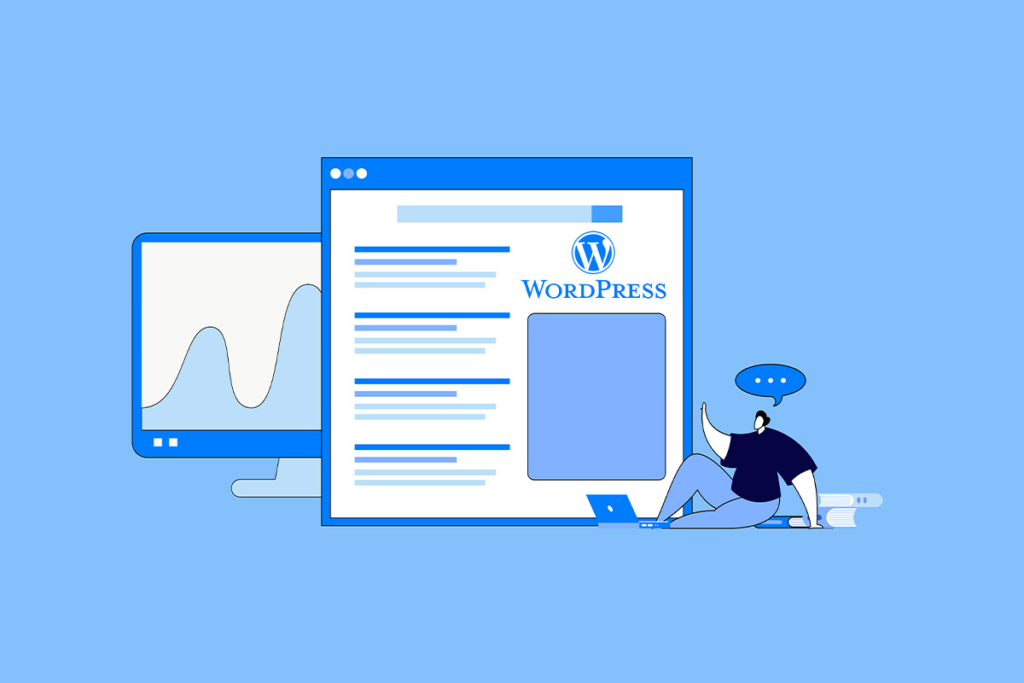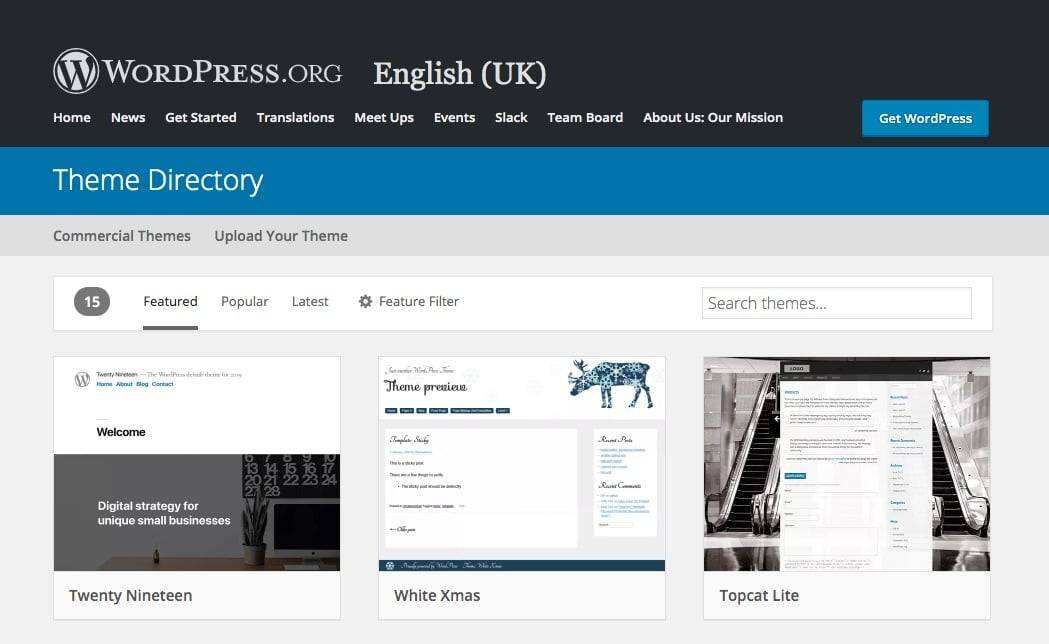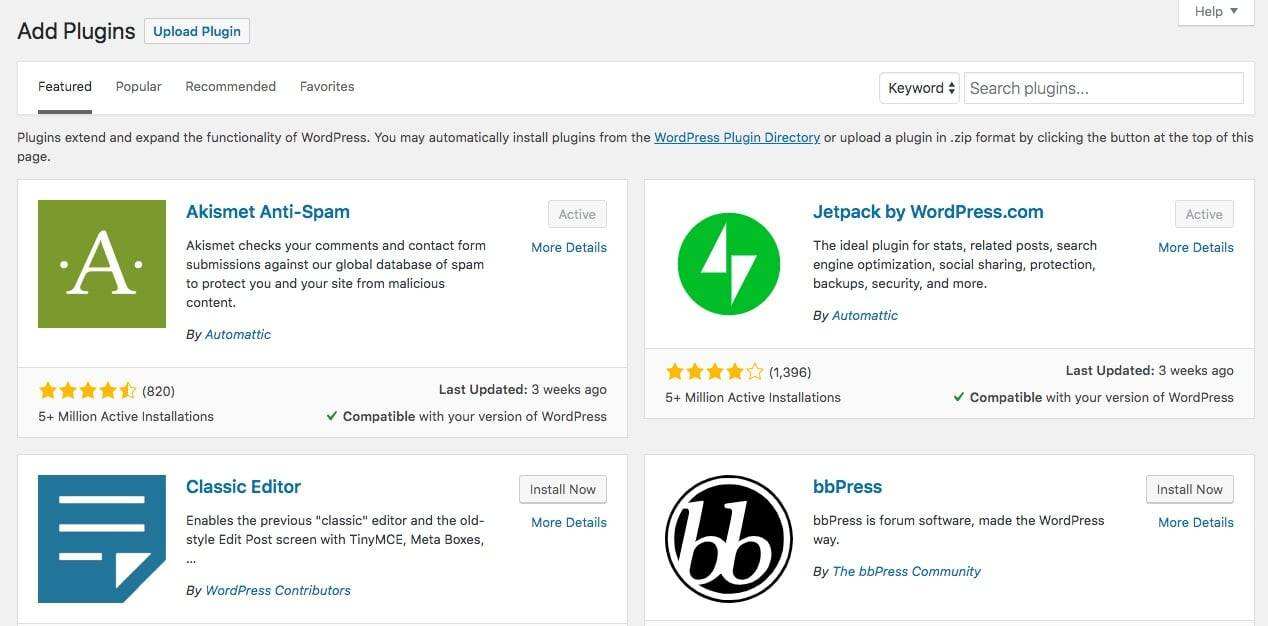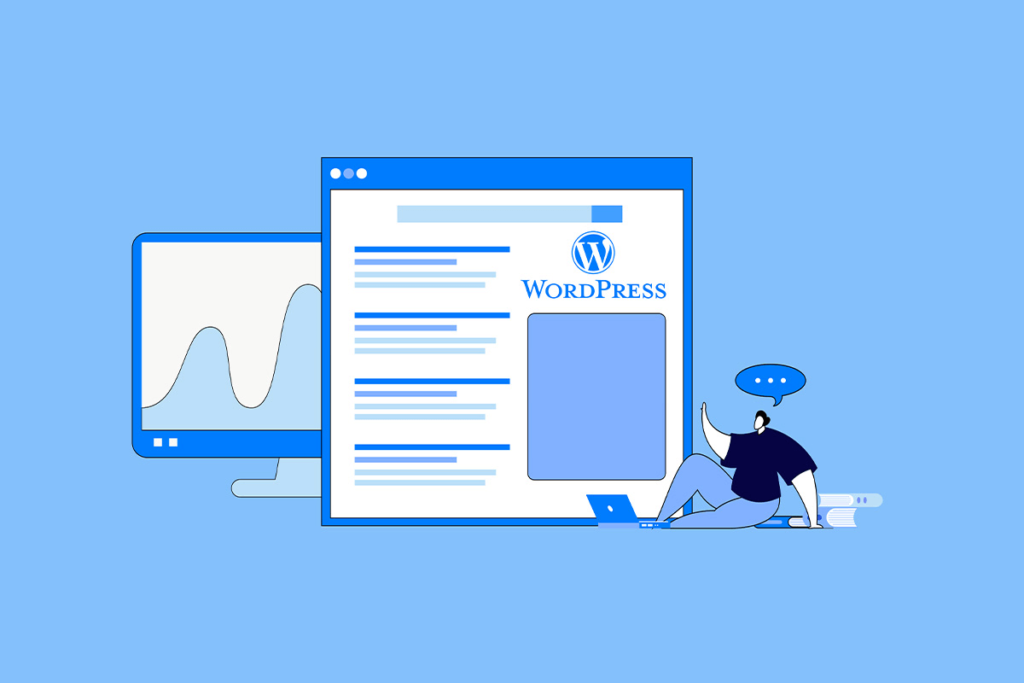
One of the puzzling aspects of WordPress is whether WordPress is free.
The answer may be complicated, which may be why people are confused. WordPress sites can be free or come with some fees (such as WordPress plug-ins and WordPress themes). But the WordPress software itself (that is, the WordPress core) is free and will always be free. This is not just about the economic cost of WordPress: it is also free because you are free to modify, expand, and use it.
Is WordPress free? The main points to know
WordPress is issued under the GNU General Public license (or GPL), which means that anyone who publishes code under the GPL license can download, edit, customize, use or even sell it.
The software itself is free, but you may end up paying for it:
- Host hosting
- Advanced support
- Updates to advanced plug-ins / themes
- Advanced topic
- Advanced plug-in
In this article, I will unveil these questions for you:
- Is WordPress really free?
- Why is WordPress free?
- What aspects of WordPress are not free?
I’ll explain the two meanings of free, and point out the main situations in which you can get a WordPress site for free, and what aspects of WordPress you can choose to get free of charge, and which aspects you may have to pay for.
Two meanings of the word “free” in WordPress
Before we explore whether WordPress is free, let’s take a look at the two meanings of the word free.
These two meanings are sometimes referred to as “free in beer” and “free in speech”.
When most people ask if WordPress is free, the first thing that comes to mind is the monetary meaning: free in beer. Beer can be free, which means you don’t have to spend a penny. But it will never be as free as speech.
The second meaning of freedom is freedom of speech. In other words, if you have a copy of WordPress software, can you use it without restrictions? The answer must be “yes!” You’ll see later.
Let’s take a closer look at WordPress’s free approach.
Free speech
WordPress software is free in both senses. You can download WordPress for free, and once you have it, you can use it or modify it at will.
The software is released under the GNU General Public license (or GPL), which means it can be downloaded, edited, customized, and used free of charge. This is a software model called open source.
The main features of the license can be summarized as follows:
- You can use WordPress in any way, without any restrictions.
- You can customize, add, or delete anything in WordPress without restrictions.
- You can repackage, rebrand, sell, and distribute WordPress without any restrictions except that it is also released under the GPL license.
The third point is very important. This means that you can use WordPress, modify it, repackage it, and sell it to others for a profit, as long as you use the GPL license at the same time. In other words, your customers can pay for the code, but you have to give them access so that they can modify the code themselves.
I know that this may come as a surprise to people who are used to dealing with non-open source software companies. But it’s true!
So, you can download WordPress and modify the code to make it run differently. In fact, that’s how WordPress started. In 2003, Matt Mulenvig (Matt Mullenweg) and Mike Mike Little modified another open source blogging system, b2/cafelog. Their result is WordPress: it started as another blogging platform, but over the years it has become a content management system for a variety of websites.
Even if you can edit the core code of WordPress, this is not a good idea. If you want to customize WordPress, the best practice is to “package” your customization into a new plug-in, or use an existing plug-in. This means that when you update the WordPress version, your customization features are not lost because they are stored in the plug-in’s file.
As we will see, some plug-ins are free and some are not: but they are all free.
Free beer
WordPress has always been free because it doesn’t belong to any company. Instead, it is owned by the non-profit WordPress Foundation, which was set up to “ensure permanent free access to the software projects we support”. Its mission is to provide a stable code base for future generations and to introduce WordPress and related open source software. The WordPress Foundation does not profit from developing or releasing WordPress: all of this work is voluntary.
WordPress has thousands of plug-ins, some of which are free and some are paid for, but they are all free. If you download or buy a plug-in, you are free to modify, adapt, and sell the code, just as you use the WordPress core, as long as you distribute them under GPL license. The best way is to write another plug-in to extend the original plug-in, but there are also many examples of people using a plug-in and writing a new plug-in based on it. Since this is open source software, this is also allowed.

GNU operating system
This is our idea: WordPress, plug-ins, and themes are all open source and released under the GPL license. You are free to use and adapt them. But when it comes to the financial problems of WordPress, the situation is more complicated.
The software itself is free, but if you want to run a website, you need server space to host it. Unless you have your own server (and the skills to use it to host a website), you will have to pay a hosting fee. They don’t own your site: it’s still yours, and you can edit, customize or move it at any time.
Managing servers and providing managed services costs money: this involves physical infrastructure and support requirements. But it won’t cost you much money, let alone the less flexible site-building program.
How did WordPress get the money?
After learning that WordPress is run by a non-profit foundation and that hundreds of developers contribute to its code base for free, you may wonder how this is done.
After all, hosting the WordPress.org website itself costs money. It also costs money to run the infrastructure that enables large teams to collaborate on WordPress. It takes time for people to get involved.
The reality is that thousands or even millions of companies, developers, and enthusiasts benefit from WordPress. They realized that without the support of people like them, WordPress would not exist and they would not have this great software to make a living. This is why they choose to give back to the WordPress community: contribute to the code base, provide support through WordPress support forums, or host events such as WordCamps and local WordPress parties.
How to get the WordPress website for free
One way to get WordPress for free is to sign up for a free WordPress.com program. WordPress.com is owned by Automattic, a private company: they host millions of websites on their servers, and if you sign up for a free program, you can get one for free.

WordPress.com
However, there are limits. Your free WordPress.com website is free, but not free. You do not have access to the code, you have limited access to topics, and you do not have access to plug-ins. You can’t use your own domain name, and there will be ads on the site that you can’t control (which is also one of its sources of funding).
For some users, this is not a problem, they can happily use WordPress.com to support their blog hobbies, or even portfolio sites. But if you want a professional website, you need more things.
Recommended reading: the best WordPress portfolio plugin for showcasing works.
Alternatively, you can sign up for an advanced WordPress.com program: so you can use your own domain name and additional features. However, you still cannot access the code. If you sign up for the WordPress.com program, the site you get is not free in any way. You have to pay for it, and you don’t have the freedom to modify the site. You may find that you pay more per month than you host a website.
That’s why I often recommend buying a self-hosted WordPress site and paying for it separately.
Why is it worth paying for WordPress hosting?
If you decide to build your own WordPress site, or migrate from a free WordPress.com plan to a self-built server, there is a key difference.
The website is not hosted on WordPress.com, but is installed on server space leased from a WordPress hosting company. The main difference here is that the site belongs to you (or your customers). You can decide what themes and plug-ins to run, you own the site and content, and you can move or change the site at any time. You are free to choose how the site operates, add content and operate (to the extent permitted by law).
This gives you freedom in the sense of “freedom of speech”.
There is a fee for hosting the WordPress site itself, but for anyone who wants to build a high-quality site, the benefits far outweigh any economic expense. Hosting is not expensive if you take into account the potential business benefits of professional websites. The free WordPress.com website does not reflect your brand well, nor does it allow you to add the features you need to run a professional website. It does not provide the control you need.
You think a free WordPress.com website is enough now. But as time goes by, your site will continue to grow and evolve, and it may not be able to meet your long-term needs. The good news is that it is not difficult to migrate from WordPress.com sites to self-hosting sites.
What aspects of WordPress are free?
Even if you don’t have a free WordPress website, there are other aspects of your WordPress installation that are free. Some aspects are always free, while for others, such as plug-ins or themes, you can choose free or advanced options.
Getting something for free sounds too good to be true. Sometimes it is. However, people who develop free themes and plug-ins for WordPress have a good reason to do so: they either want to give back to the community, or they provide a free version of the plug-in, and you can upgrade with advanced options. In this case, the free version is the introduction to the paid version. But that doesn’t mean there is no legitimate source of free WordPress code. Here, I will introduce all aspects of the WordPress that you can get for free and help you get the code without affecting the security and quality of the site.
Free (or can be free) aspects of the self-managed WordPress include:
- Core software
- Support
- Theme
- Plug-in
- Update
Let’s take a look at the software in turn.
freeware
WordPress itself is free. If you want to download WordPress, be sure to download it from the WordPress official download page.
Free support
Quality hosting service providers will support you in the hosting program to help you with hosting, domain name management, and WordPress installation.
If you need help with other aspects of WordPress, such as learning how to manage your Web site, write your own plug-ins, and fix themes or plug-in problems, you need to look for other sources of WordPress support.
It is worth repeating that free support is provided by volunteers, WordPress experts who give back to the community, or employers who give them time to support the work of the forum. Since you are not paying for this support, you should lower your expectations accordingly and do not expect an immediate reply.
Free theme
There are thousands of free themes in the WordPress theme directory.

WordPress theme directory
These themes are created by different developers, including business theme developers, volunteers, and WordPress.com teams. They have been rigorously tested before release, so you can be sure that they are carefully coded, reliable, and secure.
The WordPress theme directory is the only place where you can safely download free themes. You can either download it directly from there or install it through the theme page in site administration.
Do not download free themes from other sources! If the theme is both powerful and secure, developers should publish it through the official directory. If not, you may install themes that contain junk code or even malicious code on your site.
Free plug-in
Like themes, there are thousands of free WordPress plug-ins in the plug-ins directory. These plug-ins are as small as adding a few lines of code to a website or dashboard, to large and complex plug-ins like WooCommerce, which can add a full-featured store to the site.
You might ask, why would someone take the time to develop plug-ins and provide them for free? That’s a good question. There are usually three types of free plug-in developers:
- They are WordPress enthusiasts who want to share their code and give back to the community.
- They are the organization that develops plug-ins for customers, hoping that others will also benefit from their code (and maybe get some publicity).
- They are professional plug-in vendors who make a free version of the plug-in in the hope that some people who use the plug-in will upgrade to the advanced version or buy add-ons.
This means that people may create free plug-ins out of profit or altruism. But as with themes, if a plug-in is available for free, its inclusion in the WordPress plug-ins directory means it has been tested and is likely to be secure. You can’t guarantee that all plug-ins are the same because they may be affected by updates, but a good plug-in developer will update their plug-in to make sure it is compatible with the latest version of WordPress. When you install the plug-in, the system will tell you when the plug-in was last updated and whether it is compatible with your version of WordPress.

Plug-in compatibility
Free updates
Updating the WordPress core is free. Your management interface includes an update interface that you can use to update your software whenever a new version is released.
It is best to run the update on the staging version of your website first. If the update causes a problem (which may be incompatible with one of your plug-ins), you can choose not to update your real-time website or deactivate the plug-in until the plug-in is updated.
Free updates apply to the WordPress core as well as free themes and plug-ins. Whether you can update advanced themes or plug-ins free of charge depends on the charging model. Some themes / plug-ins are subject to an annual fee and can only be updated after the annual fee expires. There are also some themes / plug-ins that only need to pay a lifetime fee, and you can permanently update the theme / plug-in without paying any fees.
Aspects of WordPress that are not free
WordPress is free in many ways, which is one of the beauties of the platform. New users of WordPress are often baffled by the fact that such a high-quality, practical software is free. You may find it strange if you are used to buying software from companies such as Microsoft or Adobe, which may charge you high update fees or subscription fees. But as open source software, the core of WordPress is always free.
However, this does not mean that running a professional WordPress website is free. The cost depends on the needs of your site and whether you are willing to pay for the convenience of advanced plug-ins, for example, free plug-ins may only need to do a little more work to do the same or similar work.
WordPress aspects that you may need to spend money on include:
- Host hosting
- Advanced support
- Updates to advanced plug-ins / themes
- Advanced topic
- Advanced plug-in
Let’s go over it one by one again.
Pay the trusteeship fee
If you choose to self-host the WordPress site (which is more flexible and freer than the WordPress.com site), you will have to pay for the hosting service provider.
A good hosting package not only allows you to really own a self-hosting website, but also brings you other benefits:
- The ability to easily install WordPress through the mainframe dashboard.
- Access the DNS settings to configure the domain name to point to your website.
- 24 / 7 support.
- Make regular backups.
- A guarantee to prevent hacker attacks and downtime.
- Speed commitment to ensure that your website is as fast as possible.
Before choosing a managed service provider, check to see if they provide all of these services. It’s tempting to choose a cheap hosting service, but it turns out that the site is slow or support services are not as good as expected. If you want to have a professional website, it’s worth paying extra for quality.
Even if you are using WordPress.com, if you upgrade from a free program, you will eventually have to pay for the host.
If you ask me, paying the hosting fee and running your own website freely is a better investment.
Pay for support
The hosting service provider should provide support to help you solve your website hosting problems.
If you need additional support and the free channel does not meet your needs, you can purchase advanced support. There are a series of providers that will support you through subscriptions.
Pay for the subject
If you can’t find a free theme that meets your needs, or if you want a theme with a drag-and-drop interface (often referred to as a page generator), you can buy advanced WordPress themes.
There are three main types of advanced topics:
- Themes designed for ease of use, such as Astra themes.
- Themes designed for extensions, such as Divi Page Builder themes.
- Independent themes sold through markets such as ThemeForest.
Before paying for a theme, please check to see if it meets your needs and can be safely installed on your website. Specifically:
- Check its license: is it released according to GPL?
- Ask other WordPress users and developers.
- Read comments and articles that mention / comment on it
- Get a personal recommendation.
- Check to see if there is a free trial, refund guarantee, or any cooling-off period.
If the theme doesn’t meet your needs, don’t waste your money.
For more information on finding quality advanced topics, please refer to our free and advanced WordPress topic guide.
Pay for the plug-in
In addition to the free plug-ins that can be installed from the plug-in library, you may also need to purchase advanced plug-ins.
This is common: advanced plug-ins do better in some ways than free plug-ins.
Cases where you need to pay for advanced plug-ins include:
- When you have been using the free version of the plug-in, only to find that you need the extra features provided by the premium version.
- When free plug-ins do not provide the functionality or ease of use you need.
- When you need to install multiple plug-ins designed by the same developer who provides a subscription option with full access.
- When you want to add additional functionality to a free plug-in by purchasing advanced add-ons, such as those for WooCommerce.
If you invest in the right advanced plug-ins, they can save you a lot of time and bring significant improvements to your site. When deciding to install advanced plug-ins, you should be as cautious as you are using advanced themes. Therefore, you should check:
- Does the provider also have plug-ins in the plug-in directory (companies with poor reputation don’t stay in the directory for long).
- Evaluation of providers and plug-ins.
- Whether the plug-in is released according to GPL.
- What type of support will be provided to help you use the plug-in and resolve any problems.
- Is there a refund guarantee? It’s very frustrating if you install a plug-in and find that it doesn’t meet your needs and wastes your money.
The best source of information about advanced plug-ins is always personal recommendations. Communicate with other WordPress users and developers, check out WordPress forums or Facebook groups, and confirm that others are satisfied with the plug-in before purchasing.
Paid update
If you install an advanced theme or plug-in, you will usually get free updates and support for at least a year. Since most advanced plug-ins and topics run in subscription mode, you may have to pay again to get an updated version of the software and continue to get support.
However, there are exceptions: some plug-in providers only ask you to pay a fee for a lifetime.
I know that non-renewal is tempting: after all, plug-ins or themes can still be used, and if you don’t buy the latest version, you won’t lose code. But what if there is a security problem with the plug-in or theme, and the newly released update can solve the problem? What if WordPress releases a new version and your theme or plug-in no longer works? Your site or some features of your site will crash. This is something you don’t want to happen. Never!
Paid development
If you can’t find any free or advanced themes / plug-ins that meet your needs, and you don’t have the time or skills to write your own code, you can choose to hire a developer.
This includes designing and creating websites, writing plug-ins, customizing WordPress themes, and so on. It all depends on your specific needs, time, and budget.
WordPress’s design allows you to get an excellent website without hiring experts and paying extra fees. However, if you are creating a highly customized website, or if you are running a company and do not have the time or skills to do it within the company, then WordPress is a good investment.
Again, this is optional. But for some WordPress users, this is what they choose to pay for.
Summary
WordPress’s core software will always be free: freedom of speech and freedom of beer.
The software can be downloaded for free or can be used freely in any way. As long as you use the GPL license, you can customize it, extend it, redistribute it, or even sell it.
However, if you want to have a first-class website, there are some things you need to pay for.
Self-hosting sites mean that you must pay for hosting fees, at least several advanced plug-ins and / or themes, and support fees.
As for how much you can get for free, and how much you will have to pay in the end, it is up to you. But given that the software itself is free, WordPress is still good value for money. For a high-performance professional website, it is worth spending a little more money.
Recommended reading: how to install WordPress locally.

